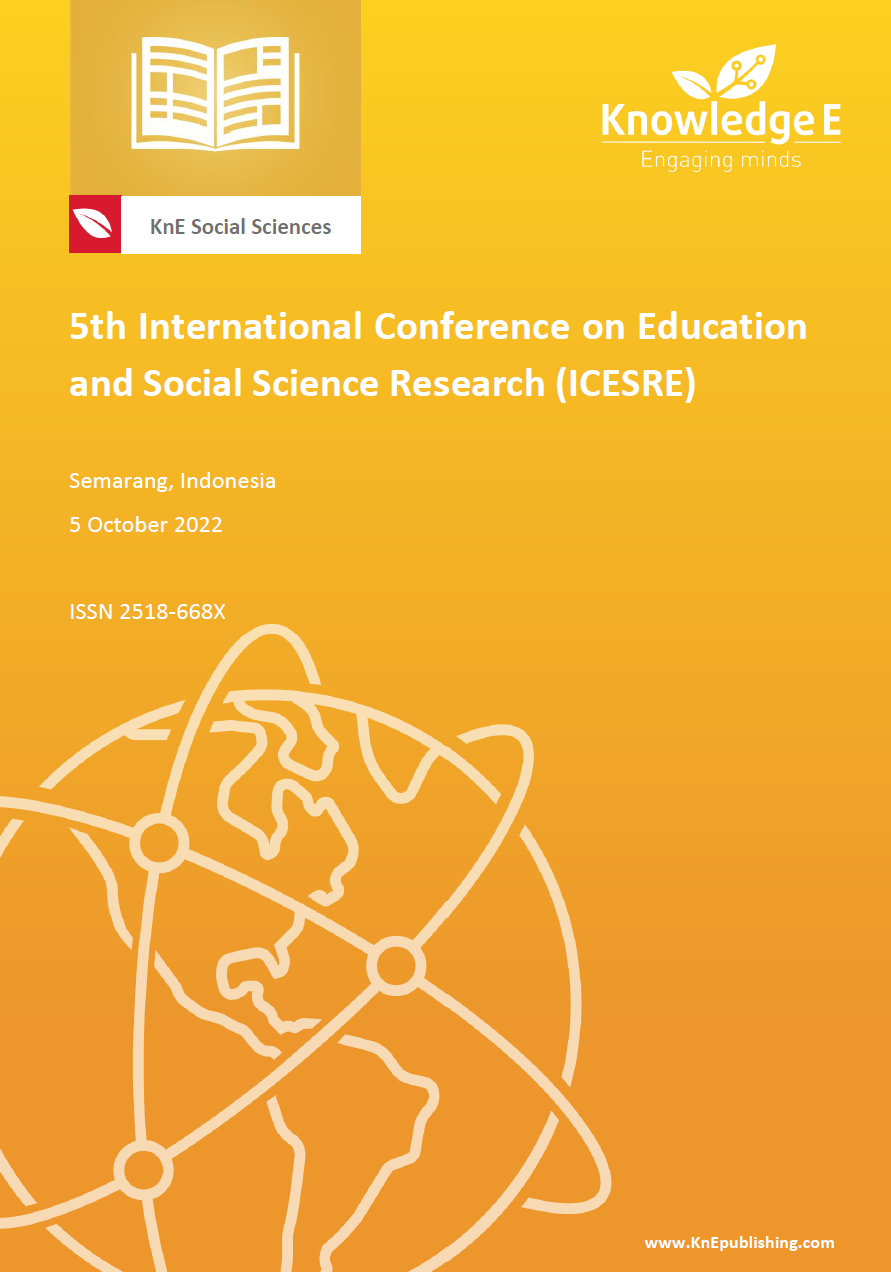Teacher's Perspective on STEAM Life Skills-Based Learning as a Means of Strengthening Pancasila Student Profiles
DOI:
https://doi.org/10.18502/kss.v7i19.12468Abstract
The STEAM approach contains life skills that support the development of project-based learning, which strengthens the profile of Pancasila students, so it is hoped teachers can implement STEAM life skills-based learning. This research aims to learn the perspective of teachers on STEAM life skills-based learning. The subjects of this study are 125 teachers from Central Java. The data collection technique used was a questionnaire, with data analysis carried out using the Milles and Huberman (2007) model. The results showed that 32.1% of teachers stated “strongly agree”,” and 42.9% of teachers stated “agree” when asked if they had heard of the STEAM approach; only 4% of teachers stated, “strongly disagree.” This shows that most teachers have heard about STEAM and have a fairly high level of understanding of the benefits of STEAM life skills-based classroom learning.
Keywords: STEAM-based learning, life skills, Pancasila Student Profile
References
[2] Riyanti ED, Roshayati F, Purnamasari V. The profile of elementary teachers’ understanding in STEAM (Science, Technology, Engineering, Art, and Mathematics) Approach. Jurnal Ilmiah Sekolah Dasar. 2021;4:678–689.
[3] Apriliana MR, Ridwan A, Hadinugrahaningsih T, Rahmawati Y. Pengembangan Soft Skills Peserta Didik melalui Integrasi Pendekatan Science, Technology, Engineering, Arts, and Mathematics (STEAM) dalam Pembelajaran Asam Basa. JRPK: Jurnal Riset Pendidikan Kimia. 2018;8:42–51.
[4] Fomunyam KG. Machine learning and stem education: Challenges and possibilities. International Journal of Difference Equations (IJDE). 2022;17:165–176.
[5] Sari PN, Ekayanti A. Penerapan model pembelajaran steam (science, technology, engineering, art, and math) untuk penguatan literasi-numerasi siswa. Jurnal Abdimas Indonesia. 2021;1:89–96.
[6] Duban N, Aydoğdu B, Kolsuz S. STEAM implementations for elementary school students in Turkey. Journal of STEM Arts, Crafts, and Constructions. 2018;3:5.
[7] Chemerys H, Ponomarenko O, Kardashov V, Briantsev O. STEAM project-based learning for future designers. AIP Conference Proceedings. 2022;2453:030026.
[8] Sartika SB, Efendi N, Wulandari FE. Relationship of students’ activities, responses, and cognitive learning outcomes on natural science learning-based ethno-STEM in secondary school. Prisma Sains: Jurnal Pengkajian Ilmu dan Pembelajaran Matematika dan IPA IKIP Mataram. 2022;10:84–92.

